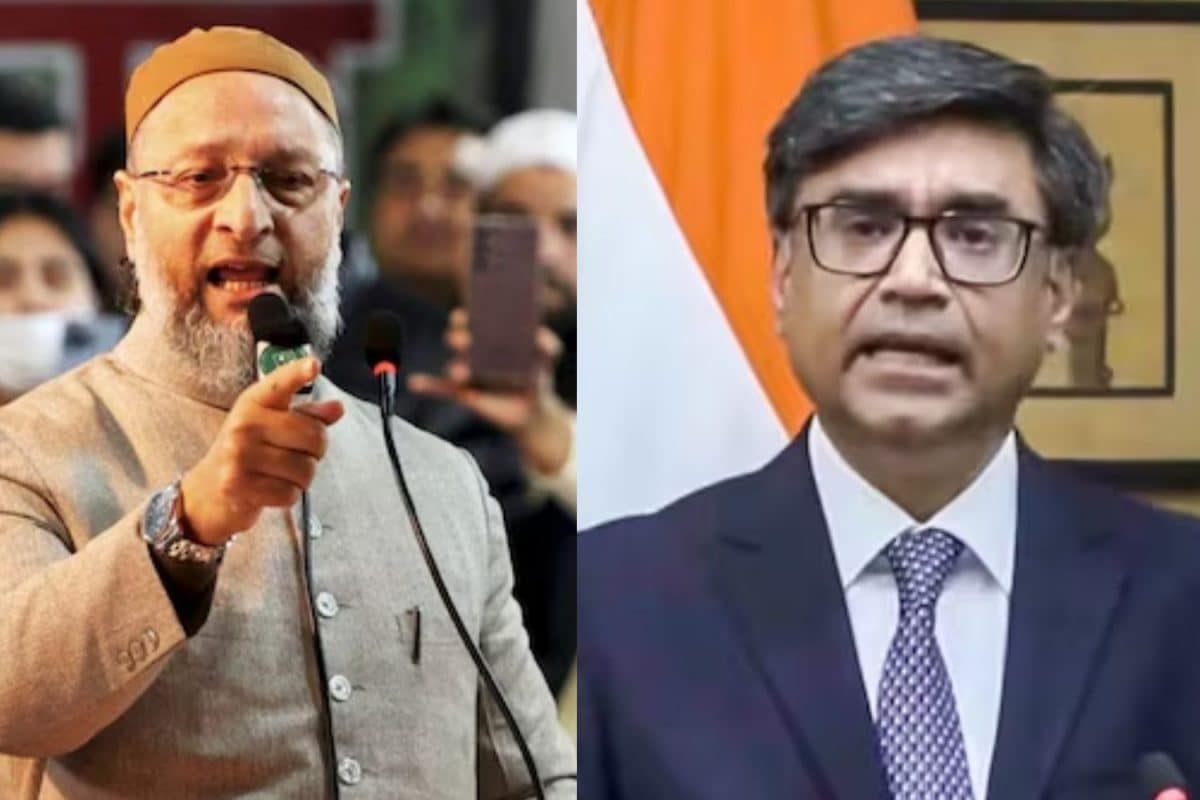

In the wake of intense online abuse directed at India's Foreign Secretary Vikram Misri and his family, AIMIM chief Asaduddin Owaisi has voiced his support for the diplomat, denouncing the unwarranted attacks. The controversy arose after India agreed to a ceasefire arrangement with Pakistan, leading to a barrage of criticism and personal attacks against Misri, with some users even dragging his daughters into the fray.
Misri, a veteran diplomat from the 1989 batch of the Indian Foreign Service, assumed the role of Foreign Secretary on July 15, 2024. He has held key positions in the Ministry of External Affairs, the Prime Minister's Office, and Indian missions across Europe, Africa, Asia, and North America. His experience includes working on the Pakistan desk and serving on the staffs of former Foreign Ministers I.K. Gujral and Pranab Mukherjee.
The online attacks against Misri and his family included insults and questioning of their citizenship. Some social media users dug up old tweets from Misri and his family to fuel their outrage. The personal nature of the attacks, particularly those targeting Misri's daughters, drew widespread condemnation. Amid the escalating abuse, Misri reportedly locked his X (formerly Twitter) account. While no official reason was given, such actions are often taken to restrict public access and limit interactions during sensitive diplomatic periods.
Owaisi, in his defense of Misri, emphasized the importance of remembering that civil servants operate under the executive branch and should not be blamed for political decisions. He described Misri as a "decent and an Honest Hard working Diplomat working tirelessly for our Nation". Owaisi's statement underscored that civil servants should not be held accountable for decisions made by the executive or political leadership.
Congress Kerala also condemned the targeting of Misri, calling it a broader trend of harassment against those not aligned with the ruling party's narrative. Similarly, Congress leader Salman Anees Soz defended Misri, highlighting his service to the country and dismissing the impact of the trolling.
The controversy highlights the growing trend of personal attacks and doxxing of public figures in India. The incident also sparked discussions about the responsibility of social media users and the need for greater accountability in online spaces. Some users have condemned the abuse, with one user, Sherbir Panag, stating, "We fail as a nation not because of ceasefires but when our only response is to abuse women...Disgusting".
Prior to the ceasefire announcement, Misri had been actively involved in managing the India-Pakistan military tensions. He accused Pakistan of disinformation and supporting cross-border terrorism. He also criticized Pakistan for targeting religious sites and schools.